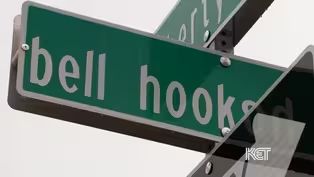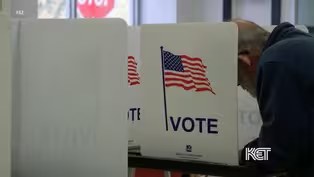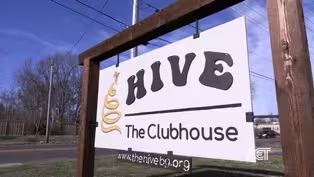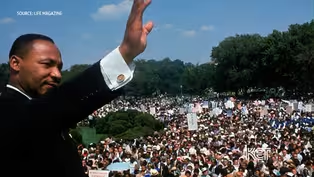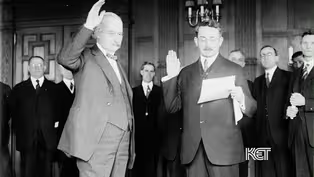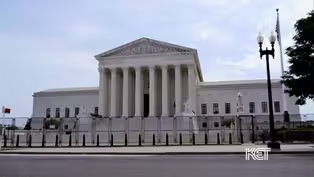
Colon Cancer Awareness
Clip: Season 2 Episode 197 | 4m 18sVideo has Closed Captions
The Kentucky Cancer Program is encouraging people to wear blue all month.
The Kentucky Cancer Program is encouraging people to wear blue all month for Colon Cancer Awareness Month.
Problems playing video? | Closed Captioning Feedback
Problems playing video? | Closed Captioning Feedback
Kentucky Edition is a local public television program presented by KET

Colon Cancer Awareness
Clip: Season 2 Episode 197 | 4m 18sVideo has Closed Captions
The Kentucky Cancer Program is encouraging people to wear blue all month for Colon Cancer Awareness Month.
Problems playing video? | Closed Captioning Feedback
How to Watch Kentucky Edition
Kentucky Edition is available to stream on pbs.org and the free PBS App, available on iPhone, Apple TV, Android TV, Android smartphones, Amazon Fire TV, Amazon Fire Tablet, Roku, Samsung Smart TV, and Vizio.
Providing Support for PBS.org
Learn Moreabout PBS online sponsorshipMarch is Colon Cancer Awareness Month and you might see more people wearing blue.
The Kentucky cancer Program is encouraging people to wear blue all month and talk about screening for colon cancer because it is preventable and treatable when caught early.
Kelsey Starks sat down with the honorary chair of Colon Cancer Prevention Month, who explains why it's so important?
Well, we're here with a familiar face.
Madeline Abramson is the former first lady of Louisville, former second lady of Kentucky, and also the honorary chair of cancer, a colon cancer prevention month, which begins here in March.
Tell us why you got involved in this cause in the first place.
You've been doing this a long time.
Well, thank you for letting me join you today.
Yes, I have been the honorary chair of Colon cancer Prevention for over 25 years.
I had the I always say, the opportunity to have a colonoscopy at a fairly young age.
And that was quite intimidating to by that and after.
But the results were fine.
But it made me realize that how important it is to talk about colon cancer and not it's not a taboo subject.
It's something we all need to be discussing and thinking about.
It's the second leading cause of cancer deaths in Kentucky.
So it's important that we and and our loved ones get screened.
And so March is the the month where we talk about colon cancer and prevention and screening.
And the screenings are so important that you're right.
It's kind of a taboo subject.
It's getting better I think.
But still second leading cause of cancer deaths.
So who should get screened and when?
Well, it's recommended beginning at age 45 that people get get screened.
But if they have a family history or other other factors, it might even be earlier.
So I think the best thing is for people to talk with their primary care physician and see what's right for them.
And it's one of those cancers, too, that is preventable and it's treatable as long as it's caught early enough.
Yes, early on there are very few symptoms.
So that's where screening is so important, because if you wait long enough for the symptoms to show up, then it's that's not that's not good.
So let's talk about those screenings.
A lot of people say it's not as bad as you think it will be.
It's a fairly easy process, right?
It is an easy process.
And there are multiple forms of screening available now.
That's why it's so important for people to speak with their physician to see which form of testing is is right for them.
And does insurance cover it?
I know that's one thing a lot of people talk about.
I can't afford it.
Well, insurance covers it.
But there are also available programs throughout the state for people to take advantage of if they do not have insurance or if they are underinsured, that that shouldn't be a barrier to getting screened.
And so colon cancer is on the rise in a particular demographic, people ages 45 to 49.
And so that's why they say 45 is an important time to start, right?
Yes, it used to be the recommendation was have a screening 50 or older, but because of the prevalence of colon cancer at a younger age, that the the threshold was moved to 45.
Yeah.
So that has changed.
And so that's something to keep in mind.
And there are programs that will cover it.
And if you want to find more about how to get screened, the Kentucky Cancer Program is hosting screenings all month long, all across the state, so you can get in touch with the Kentucky Cancer program to find out some of those screen
Video has Closed Captions
Clip: S2 Ep197 | 3m 15s | A new street sign graces downtown Hopkinsville in honor of native daughter bell hooks. (3m 15s)
Video has Closed Captions
Clip: S2 Ep197 | 3m 37s | Restoring voting rights to formerly incarcerated Kentuckians finds bipartisan support. (3m 37s)
Video has Closed Captions
Clip: S2 Ep197 | 3m 51s | The Hive offers resources for adults with intellectual and developmental disabilities. (3m 51s)
Video has Closed Captions
Clip: S2 Ep197 | 3m 6s | Frazier Museum commemorates the 60th anniversary of the March on Frankfort. (3m 6s)
This Week in KY History (3/4/2024)
Video has Closed Captions
Clip: S2 Ep197 | 1m 58s | A look back at this week in Kentucky's history. (1m 58s)
Video has Closed Captions
Clip: S2 Ep197 | 3m 8s | UK law professor on SCOTUS ruling restoring Donald Trump to Colorado election ballot. (3m 8s)
Providing Support for PBS.org
Learn Moreabout PBS online sponsorship
- News and Public Affairs

Top journalists deliver compelling original analysis of the hour's headlines.

- News and Public Affairs

FRONTLINE is investigative journalism that questions, explains and changes our world.












Support for PBS provided by:
Kentucky Edition is a local public television program presented by KET
